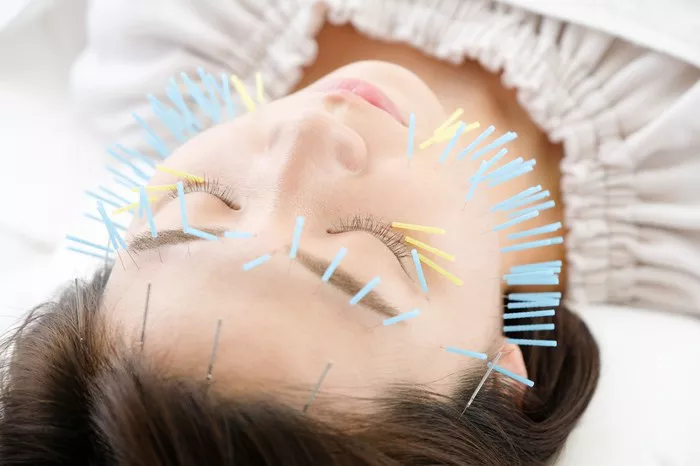Introduction:
Scars can be a source of physical and emotional discomfort, and many people seek treatment to reduce their appearance. Laser therapy is a popular treatment option for scars, as it can be effective in reducing the appearance of scars and improving skin texture. However, with so many different types of lasers available, it can be difficult to determine which laser is best for scars. In this article, we will explore the different types of lasers and their effectiveness for scar treatment.
Types of Lasers for Scar Treatment:
There are several types of lasers that can be used for scar treatment, including:
Fractional CO2 Lasers: Fractional CO2 lasers are a type of ablative laser that work by removing the top layer of skin to stimulate collagen production. This can help to improve the appearance of scars by smoothing out the skin’s surface.
Pulsed Dye Lasers: Pulsed dye lasers are a type of non-ablative laser that work by targeting the blood vessels in the skin. This can help to reduce redness and inflammation associated with scars.
Erbium Lasers: Erbium lasers are a type of ablative laser that work by removing the top layer of skin to stimulate collagen production. This can help to improve the appearance of scars by smoothing out the skin’s surface.
Nd:YAG Lasers: Nd:YAG lasers are a type of non-ablative laser that work by targeting the pigment in the skin. This can help to reduce the appearance of scars by breaking up the pigment.
Effectiveness of Different Types of Lasers for Scar Treatment:
The effectiveness of different types of lasers for scar treatment can vary depending on the type and severity of the scar. Here is a breakdown of the effectiveness of different types of lasers for scar treatment:
Fractional CO2 Lasers: Fractional CO2 lasers are highly effective for treating deep, pitted scars, as they can penetrate deep into the skin to stimulate collagen production. They are also effective for treating acne scars and surgical scars.
Pulsed Dye Lasers: Pulsed dye lasers are effective for treating red, raised scars, such as keloid scars and hypertrophic scars. They work by targeting the blood vessels in the skin to reduce redness and inflammation.
Erbium Lasers: Erbium lasers are effective for treating shallow scars, such as fine lines and wrinkles. They work by removing the top layer of skin to stimulate collagen production.
Nd:YAG Lasers: Nd:YAG lasers are effective for treating pigmented scars, such as acne scars and age spots. They work by breaking up the pigment in the skin to reduce the appearance of scars.
Choosing the Best Laser for Scar Treatment:
When choosing the best laser for scar treatment, it is important to consider the type and severity of the scar, as well as the individual’s skin type and medical history. Here are some factors to consider when choosing the best laser for scar treatment:
Scar Type: The type of scar will determine the type of laser that is most effective for treatment. For example, deep, pitted scars may require a fractional CO2 laser, while red, raised scars may require a pulsed dye laser.
Skin Type: The individual’s skin type will also play a role in determining the best laser for scar treatment. For example, individuals with darker skin may be more prone to hyperpigmentation and may require a non-ablative laser, such as a pulsed dye laser or Nd:YAG laser.
Medical History: The individual’s medical history will also be taken into consideration when choosing the best laser for scar treatment. For example, individuals with a history of keloid scarring may require a non-ablative laser, as ablative lasers can increase the risk of keloid formation.
Treatment Goals: The individual’s treatment goals will also be considered when choosing the best laser for scar treatment. For example, if the goal is to reduce redness and inflammation, a pulsed dye laser may be the best option, while if the goal is to improve skin texture, a fractional CO2 laser may be more effective.
Conclusion:
In conclusion, laser therapy is a popular treatment option for scars, as it can be effective in reducing the appearance of scars and improving skin texture. However, with so many different types of lasers available, it is important to choose the best laser for scar treatment based on the type and severity of the scar, the individual’s skin type and medical history, and their treatment goals. Consult with a dermatologist or laser specialist to determine the best laser for your scar treatment. With the right approach, you can achieve smoother, more even skin and regain your confidence.
[inline_related_posts title=”You Might Be Interested In” title_align=”left” style=”list” number=”6″ align=”none” ids=”4365,4362,4221″ by=”categories” orderby=”rand” order=”DESC” hide_thumb=”no” thumb_right=”no” views=”no” date=”yes” grid_columns=”2″ post_type=”” tax=””]
































